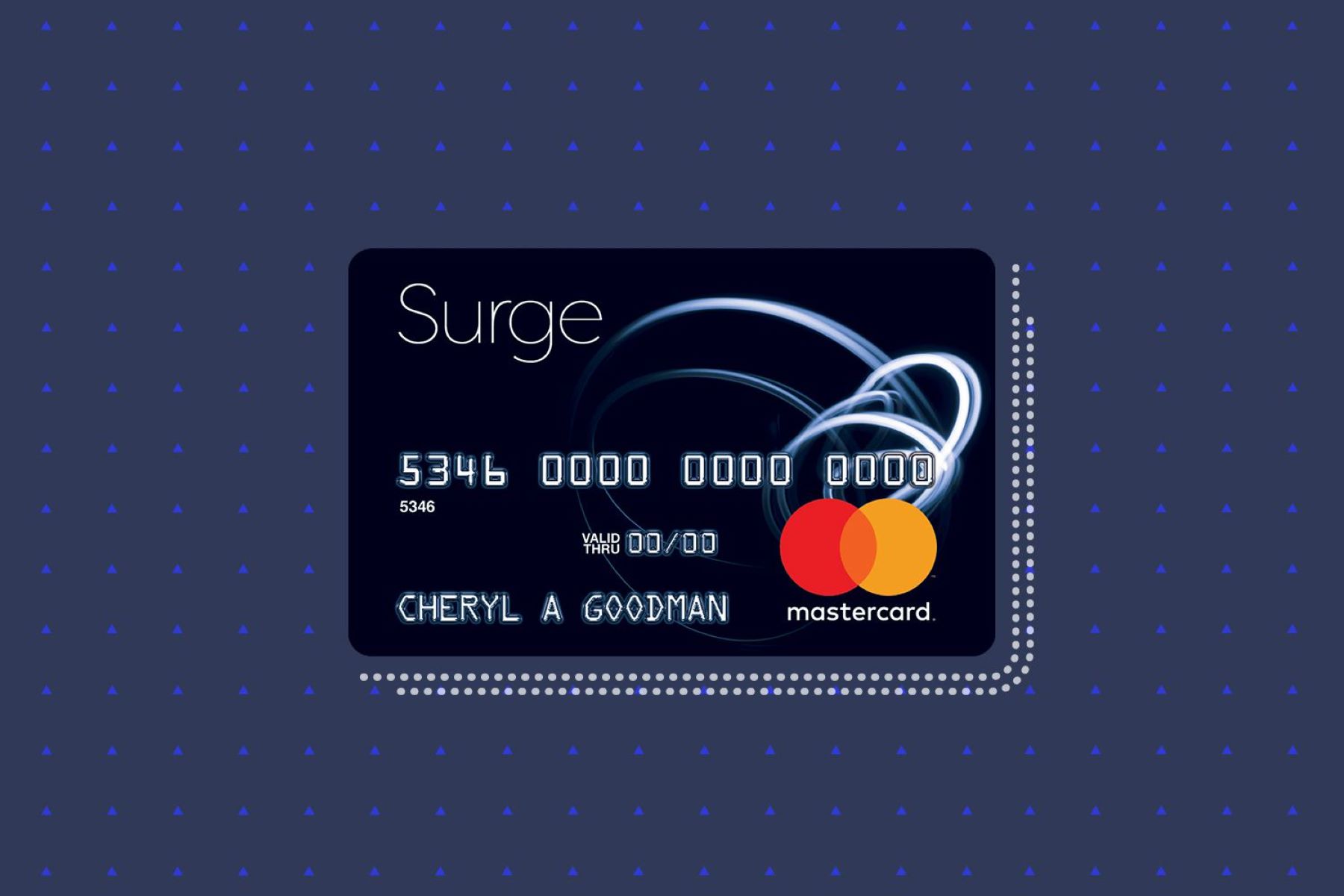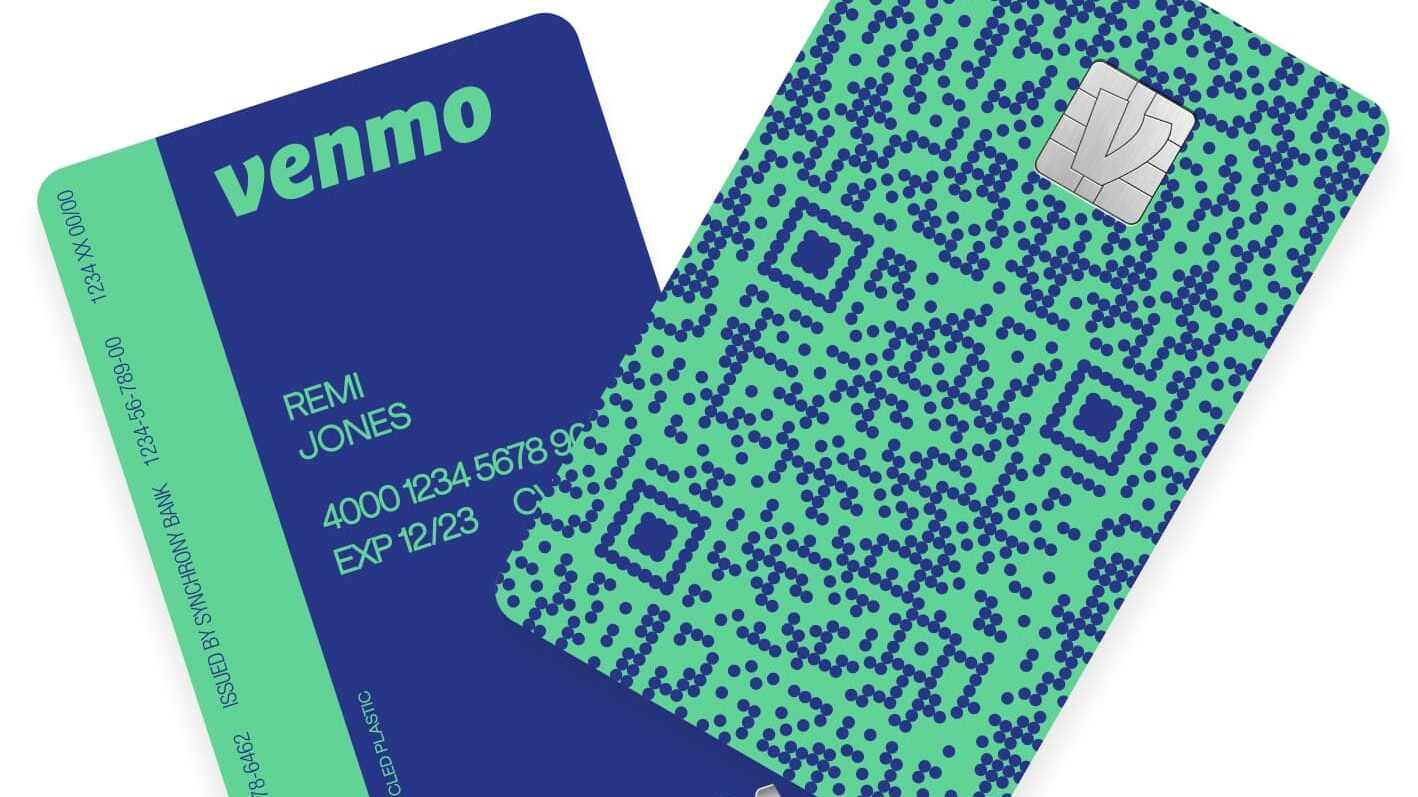Home>Finance>What Credit Score Do You Need For Surge Credit Card


Finance
What Credit Score Do You Need For Surge Credit Card
Published: October 24, 2023
Find out what credit score is needed to qualify for the Surge Credit Card and start building your credit. Apply for this finance card today to improve your financial future.
(Many of the links in this article redirect to a specific reviewed product. Your purchase of these products through affiliate links helps to generate commission for LiveWell, at no extra cost. Learn more)
Table of Contents
Introduction
Welcome to the world of credit scores, where a three-digit number can have a significant impact on your financial life. Whether you’re looking to apply for a loan, finance a car, or even open a new credit card, your credit score plays a crucial role in determining your eligibility and the terms of your credit agreement.
In this article, we’ll dive into the specifics of credit scores and explore the requirements for obtaining a Surge Credit Card. As a popular choice for individuals looking to establish or rebuild their credit, the Surge Credit Card offers a pathway to financial stability and improved creditworthiness. But just what credit score do you need to be eligible for this card? We’ll answer this question, provide insights into the factors that affect credit score eligibility, and discuss options if your credit score falls below the required range.
Before we delve into the details, let’s take a moment to understand what a credit score is and why it matters.
Understanding Credit Scores
A credit score is a numerical representation of an individual’s creditworthiness, which is used by lenders to assess the likelihood of a borrower repaying their debts. It is a three-digit number that ranges from 300 to 850, with higher scores indicating a lower credit risk. Financial institutions, such as banks and credit card companies, rely on credit scores to evaluate loan applications and determine the interest rates and credit limits they offer.
Several factors contribute to the calculation of a credit score. The most commonly used credit scoring model is the FICO score, which takes into account five main components:
- Payment History: This accounts for approximately 35% of your credit score and evaluates your track record of making on-time payments to lenders. Consistently paying your bills by the due date demonstrates responsible credit management.
- Credit Utilization: This factor makes up about 30% of your credit score and measures the amount of credit you are using compared to your available credit limit. Keeping your credit utilization ratio low, ideally below 30%, signals to lenders that you are managing your credit responsibly.
- Length of Credit History: The length of time you have held credit accounts for roughly 15% of your credit score. A longer credit history gives lenders more data to assess your creditworthiness. It is generally beneficial to maintain a well-established credit history.
- Credit Mix: This makes up around 10% of your credit score and evaluates the different types of credit accounts you have, such as credit cards, loans, and mortgages. Demonstrating a diverse credit profile can positively impact your credit score.
- New Credit Inquiries: This factor accounts for approximately 10% of your credit score and looks at how often you apply for new credit. Multiple credit inquiries within a short period can be seen as a sign of increased credit risk.
Understanding these components will help you gain a deeper insight into how your credit score is calculated and the factors that influence it. With this knowledge, you can take proactive steps to improve and maintain a healthy credit score.
Surge Credit Card Overview
The Surge Credit Card is a popular option for individuals who are looking to establish or rebuild their credit. It is designed to provide a pathway to financial stability and improve creditworthiness. The card is issued by Celtic Bank and is accepted at millions of locations worldwide.
One of the key advantages of the Surge Credit Card is that it is accessible to individuals with less-than-perfect credit scores. This makes it a viable option for those who may have been denied by other credit card issuers. The Surge Credit Card offers the opportunity to demonstrate responsible credit behavior and build a positive credit history.
While the Surge Credit Card may not offer the same benefits and rewards as premium credit cards, it provides a stepping stone for individuals who are working towards improving their credit health. Making timely payments and managing the card responsibly can lead to an increase in credit limit and potentially open doors to better credit card options in the future.
One important aspect to consider is that the Surge Credit Card is an unsecured credit card, meaning it does not require a security deposit to open the account. This can be beneficial for individuals who do not have extra funds available for a deposit.
It’s worth noting that the Surge Credit Card comes with certain fees and charges. These can include an annual fee, monthly maintenance fees, and potentially higher interest rates depending on the individual’s creditworthiness. It’s important to carefully review and understand the terms and fees associated with the card before applying.
In summary, the Surge Credit Card offers individuals with less-than-ideal credit scores an opportunity to establish or rebuild their credit. While it may not offer the same perks and rewards as premium credit cards, it allows cardholders to demonstrate responsible credit behavior and work towards improving their creditworthiness over time.
Minimum Credit Score Requirement for Surge Credit Card
When it comes to the minimum credit score requirement for the Surge Credit Card, the exact number can vary. Generally, the Surge Credit Card is available to individuals with credit scores in the fair to poor range.
While the minimum credit score required for the Surge Credit Card is not explicitly defined by Celtic Bank, the issuer of the card, it is important to have a credit score that falls within a certain range to increase your chances of approval. Generally, a credit score of 550 or higher is considered a good starting point for eligibility for the Surge Credit Card.
It’s important to understand that meeting the minimum credit score requirement does not guarantee approval for the Surge Credit Card. Other factors, such as income, debt-to-income ratio, and past credit history, will also be considered by the issuer when assessing your application.
If your credit score falls below the minimum requirement, it doesn’t mean all hope is lost. You may still have options to improve your credit health and become eligible for the Surge Credit Card in the future. Working on building a positive credit history, making on-time payments, and reducing outstanding debt can all contribute to improving your credit score over time.
It is also worth noting that credit scores are not the sole determining factor for credit card approval. Each applicant’s financial circumstances are unique, and lenders may take other factors into consideration when evaluating creditworthiness.
To increase your chances of approval for the Surge Credit Card, it is important to review your credit report regularly, correct any errors, and take steps to improve your credit standing. Building a solid credit history and maintaining responsible credit habits can help you meet the minimum credit score requirement and attain financial stability.
Factors Affecting Credit Score Eligibility
Several factors can impact your credit score eligibility, both for the Surge Credit Card and other credit cards. Understanding these factors will give you insight into what lenders consider when evaluating your creditworthiness. Here are some key factors that can influence your credit score eligibility:
- Credit History: Your credit history, including the length of your credit accounts and the types of credit you have utilized, plays a significant role in determining your credit score eligibility. Lenders prefer borrowers with a longer credit history as it provides them with more data to assess your creditworthiness.
- Payment History: Your payment history has a substantial impact on your credit score. Consistently making on-time payments demonstrates responsible credit management and can positively impact your credit score eligibility.
- Credit Utilization: The amount of credit you are utilizing compared to your available credit limit, also known as credit utilization ratio, can affect your credit score eligibility. It is generally recommended to keep your credit utilization ratio below 30% to show responsible credit management.
- Derogatory Marks: Negative information such as late payments, bankruptcies, or collections can significantly impact your credit score and eligibility for credit cards. It’s essential to address and resolve any derogatory marks on your credit report to improve your chances of credit card approval.
- New Credit Applications: Applying for multiple credit cards or loans within a short period can raise red flags for lenders and make them perceive you as a higher credit risk. It is advisable to space out credit applications to avoid negative impacts on your credit score.
- Debt-to-Income Ratio: Lenders also consider your debt-to-income ratio, which is the percentage of your monthly income that goes towards debt payments. A high debt-to-income ratio can negatively affect your credit score eligibility, as it indicates a higher risk of defaulting on payments.
It’s important to note that the weightage of each factor may vary depending on the credit scoring model used by lenders. However, generally, maintaining a positive credit history, making on-time payments, and keeping credit utilization low can improve your credit score and enhance your credit score eligibility for various credit cards, including the Surge Credit Card.
Building or Improving Your Credit Score
Building or improving your credit score takes time and effort, but the rewards are well worth it. A higher credit score can lead to better interest rates, higher credit limits, and more favorable terms on loans and credit cards. Here are some strategies to help you build or improve your credit score:
- Pay Your Bills on Time: One of the most crucial factors in building a good credit score is making timely payments. Set up reminders or automatic payments to ensure you never miss a due date.
- Reduce Credit Utilization: Keeping your credit utilization ratio below 30% is recommended. Pay down existing balances and avoid maxing out your credit cards, as high balances can negatively impact your credit score.
- Establish Credit History: If you’re new to credit, consider opening a secured credit card or becoming an authorized user on someone else’s credit card. Timely payments and responsible credit usage will help you build a positive credit history over time.
- Monitor Your Credit Report: Regularly check your credit report for any errors or discrepancies. Dispute any inaccuracies and follow up to ensure they are corrected promptly.
- Be Mindful of New Credit Applications: Be selective when applying for new credit. Each credit application generates a hard inquiry on your credit report, which can temporarily lower your score. Only apply for credit when necessary.
- Keep Old Accounts Open: Length of credit history is a factor in credit scoring. If you have old credit cards with no annual fees, consider keeping them open, even if you don’t use them regularly. Closing old accounts can shorten your credit history and impact your score.
- Manage Different Types of Credit: A healthy mix of credit accounts, such as credit cards, loans, and a mortgage, can positively influence your credit score. However, remember to only take on what you can comfortably manage.
- Pay Off Debt Strategically: Prioritize paying off high-interest debt first, as reducing overall debt can improve your credit utilization and demonstrate responsible credit management.
Remember, building or improving your credit score is a gradual process. It takes a combination of responsible credit usage, consistent payments, and patience. By implementing these strategies and maintaining good credit habits, you’ll be well on your way to achieving a stronger credit score and increasing your eligibility for credit cards like the Surge Credit Card.
Alternative Options for Those with Lower Credit Scores
If your credit score is below the minimum requirement for the Surge Credit Card or if you’re looking for alternative options to build your credit, there are several alternatives you can consider:
- Secured Credit Cards: Secured credit cards are a great option for individuals with lower credit scores. These cards require a security deposit, which acts as collateral for the credit limit you are given. By making timely payments and demonstrating responsible credit behavior, you can improve your credit score over time and potentially qualify for unsecured credit cards.
- Credit Builder Loans: Some financial institutions offer credit builder loans specifically designed for individuals looking to build their credit. These loans typically involve borrowing a small amount of money that is held in a savings account. As you make regular payments, the loan is gradually paid off, and your credit history is established or improved.
- Authorized User or Joint Account: If you have a family member or a close friend with good credit, you may consider becoming an authorized user or opening a joint account with them. Their positive credit history can potentially benefit your credit score. However, it’s important to make sure both parties understand the responsibilities and potential risks associated with these arrangements.
- Retail Store Credit Cards: Some retail stores offer credit cards that are generally easier to qualify for, even with lower credit scores. These cards typically have lower credit limits and may have higher interest rates, so it’s important to use them responsibly and make timely payments.
- Credit Counseling: Seeking credit counseling from a reputable agency can provide you with valuable guidance and resources to improve your credit score. Credit counselors can help create a personalized plan to manage your debt, negotiate payment plans with creditors, and provide educational resources for long-term financial health.
It’s important to note that while these alternative options can provide opportunities to build or improve your credit score, it’s essential to practice responsible credit behavior. Make payments on time, keep credit utilization low, and avoid taking on more debt than you can handle.
By utilizing these alternative options and following good credit practices, you can work towards building a positive credit history and eventually become eligible for credit cards like the Surge Credit Card.
Conclusion
Your credit score plays a significant role in your financial life, impacting your ability to qualify for credit cards, loans, and other financial opportunities. While the exact minimum credit score required for the Surge Credit Card may not be explicitly defined, having a credit score in the fair to poor range, generally around 550 or higher, increases your chances of approval.
Understanding the factors that affect your credit score eligibility, such as payment history, credit utilization, length of credit history, and new credit applications, can help you make informed decisions to improve your creditworthiness.
The Surge Credit Card offers individuals with lower credit scores an opportunity to establish or rebuild their credit. It serves as a stepping stone towards financial stability and improved credit health. By making timely payments and managing the card responsibly, you can build a positive credit history and work towards increasing your eligibility for more favorable credit cards in the future.
If your credit score falls below the minimum requirement for the Surge Credit Card, there are alternative options available. Secured credit cards, credit builder loans, becoming an authorized user or opening a joint account, and retail store credit cards can provide avenues to build or improve your credit score.
Remember, building good credit takes time, patience, and responsible credit behavior. Regularly monitor your credit report, correct any errors, and follow good credit practices to maintain a healthy credit score. By taking proactive steps and utilizing the available options, you can work towards achieving financial stability and greater credit score eligibility.
Ultimately, the Surge Credit Card and other credit-building options are tools to help you on your journey to improved creditworthiness. With dedication and a focus on building healthy financial habits, you can pave the way to a brighter financial future.














